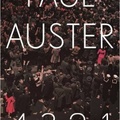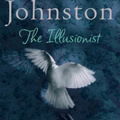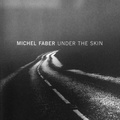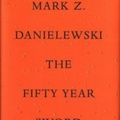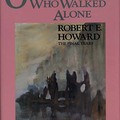Anthony Burgess: Nothing Like the Sun
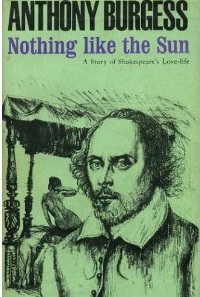 We all know or think we know something about William Shakespeare: everyone knows the titles of at least a couple of his works, everyone knows some basic biographical facts about him, and everyone knows his portrait which is featured not only on the cover of Burgess’ novel but also in probably every single high school textbook of literature.
We all know or think we know something about William Shakespeare: everyone knows the titles of at least a couple of his works, everyone knows some basic biographical facts about him, and everyone knows his portrait which is featured not only on the cover of Burgess’ novel but also in probably every single high school textbook of literature.
The main character of Nothing Like the Sun is William Shakespeare, and the novel is his life and artistic career. Just like a regular biography, the book features such details as Shakespeare’s birthplace, the name of his spouse, and the names of the theatres and companies he worked for after moving to London from Stratford-upon-Avon. However, all this is just background, and this novel is about everything which is usually left out from the regular biographies: what was Shakespeare like as a friend, lover, father? What were his passions and how did he live his everyday life? Where did he get the ideas for his plays and sonnets from? Who or what inspired him? What was he like as a person – honest, open, careful, corrupt?
400 years after his life, these questions, of course, cannot be answered with any kind of „scientific” accuracy and authenticity – and Burgess didn’t attempt to do this. What he wrote is not a biography proper, but rather an exceedingly clever and entertaining fictive biography in which he doesn’t write about the „real” Shakespeare but about the poet as he may-have-been.
The great playwright starts out as a true poet-in-the-making: during his teenage years, he should spend his time learning the basics of his father’s trade (glove-making), but his mind is occupied not with gloves and leather, but with puns and as yet immature and clumsy sonnets. And even though the young bard is not at all sure that he has any artistic talent whatsoever, he is definitely sure that he doesn’t want to spend his life working as a glover, so when he’s presented with the chance to join a playing company, he doesn’t think twice before leaving his family for London. After his escape, he spends most of his time in London where a lot of work, a lot of animosity and a lot of success lies a-waiting for him – and this is also where he meets his two muses: the golden man and the dark lady who inspired him to write his sonnets.
Shakespeare, as depicted/imagined by Burgess, is an intriguing and ambiguous character: he is very practical and businesslike, but his mind is just as full of fascinating ideas and free-floating lines of poems as we like to think about great poets; he enjoys the company of his lovers and his life in general, but he cannot for a moment forget the melancholy fact that he’s getting older; he seems to neglect his family and hardly ever pays them a visit, but he never forgets to send them enough money for their daily needs. And so on.
Reading about the (fictitious) course of the poet’s life is exciting in itself, but Burgess offers other thrills and games as well. For instance, he includes some famous lines from his plays in his conversations with others, or he mentions a seemingly unimportant episode in Shakespeare’s life in which you can recognize the basis or a crucial plot element of one of his later works. Just one example: Shakespeare once witnesses an execution which is carried out by the executioner cutting out the convict’s heart. And of course you never know how a real life event is actually transformed into the artistic output of a writer (or if it ever gets transformed into art), this episode may easily remind you of The Merchant of Venice, the plot of which, among other things, revolves around cutting out a pound of meat from a man’s body, and you may think that Shakespeare must have gotten this element of the play from the execution he saw several years earlier.
And the novel is full of literary games like this, so if you happen to enjoy thinking about topics such as the connections between reality and fiction, and their effects on each other, and if you’re prone to look for allusions and half-hidden references even in the most innocent lines of a novel, then you will quite probably enjoy this creative and marvelously witty book.

